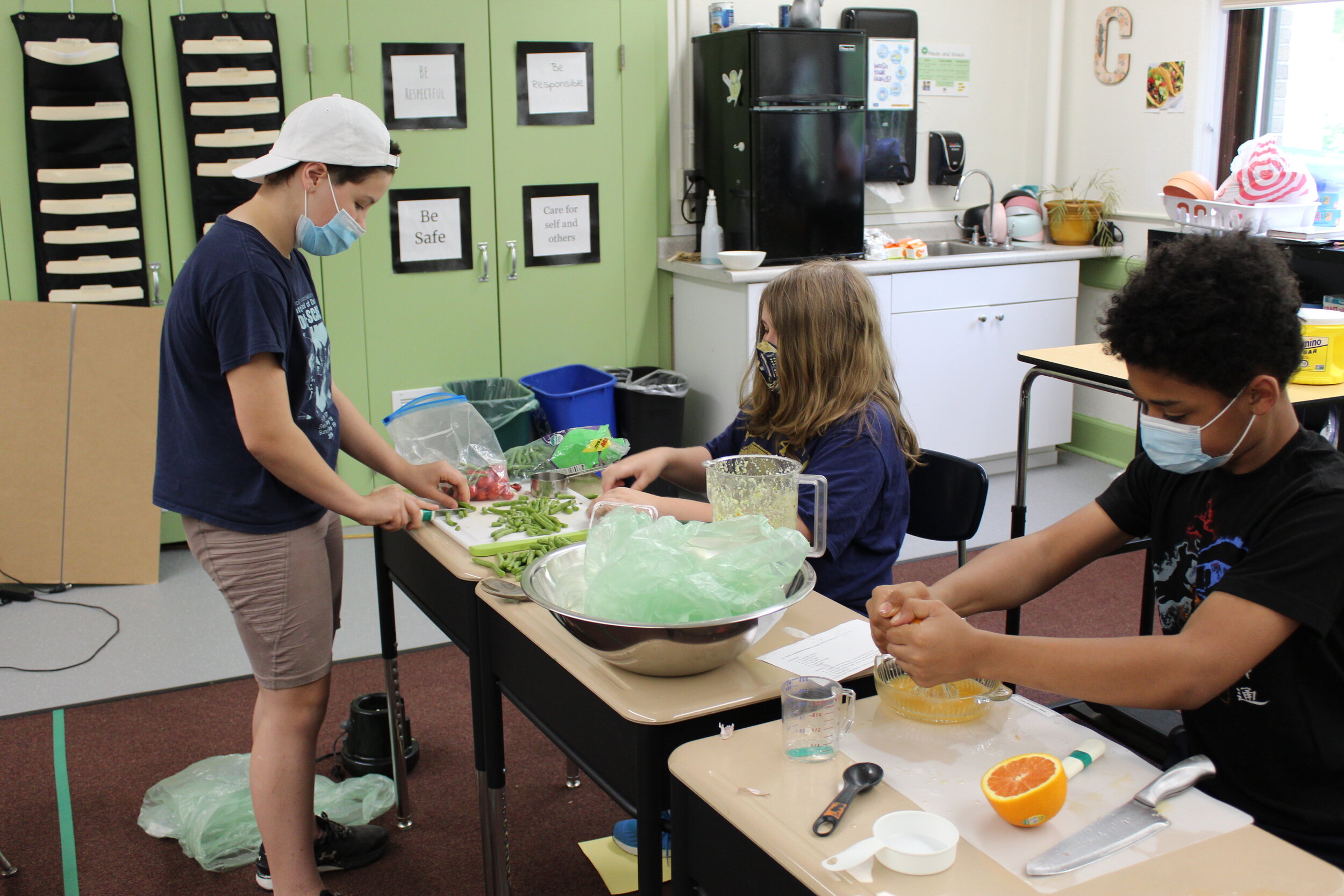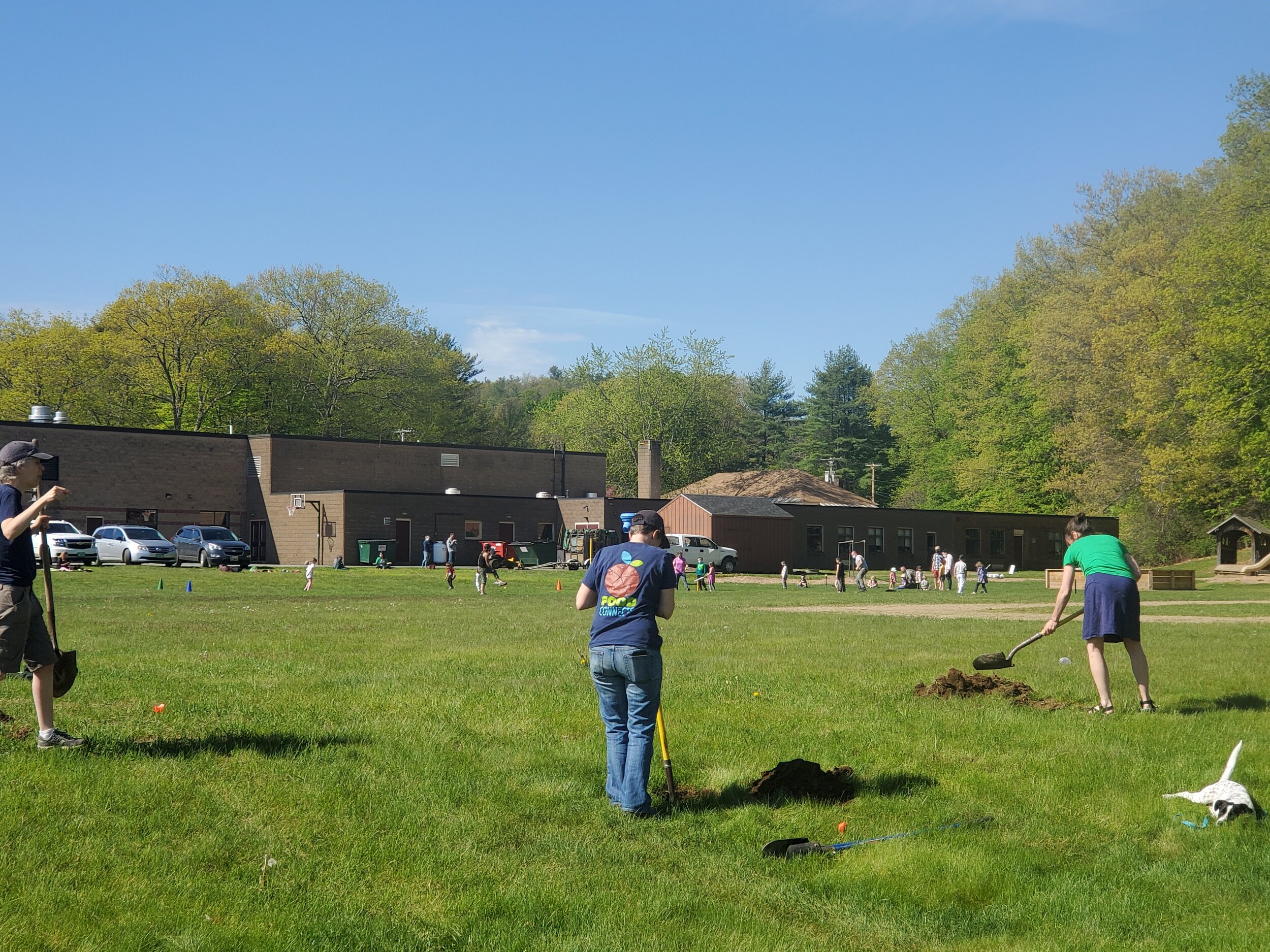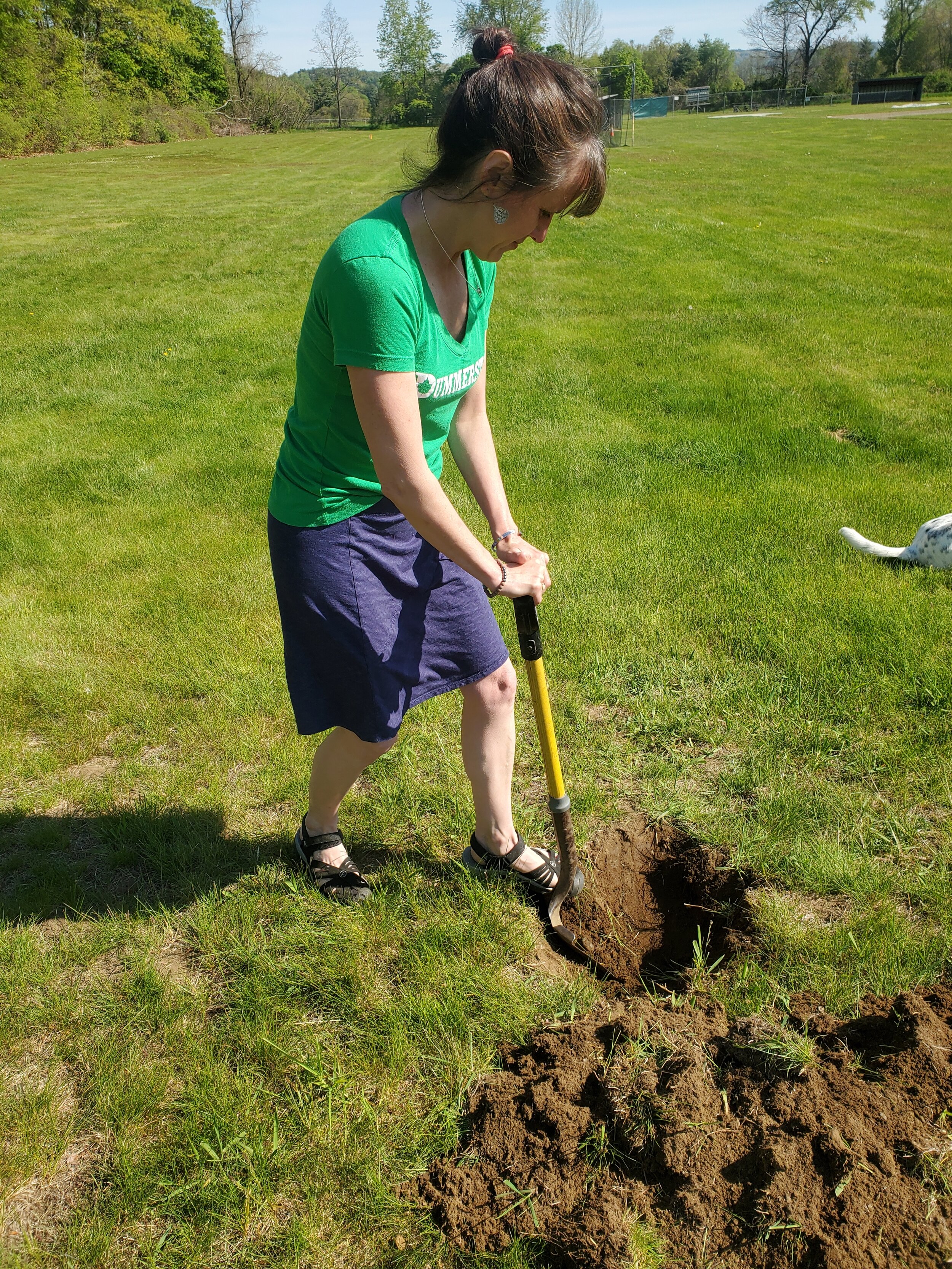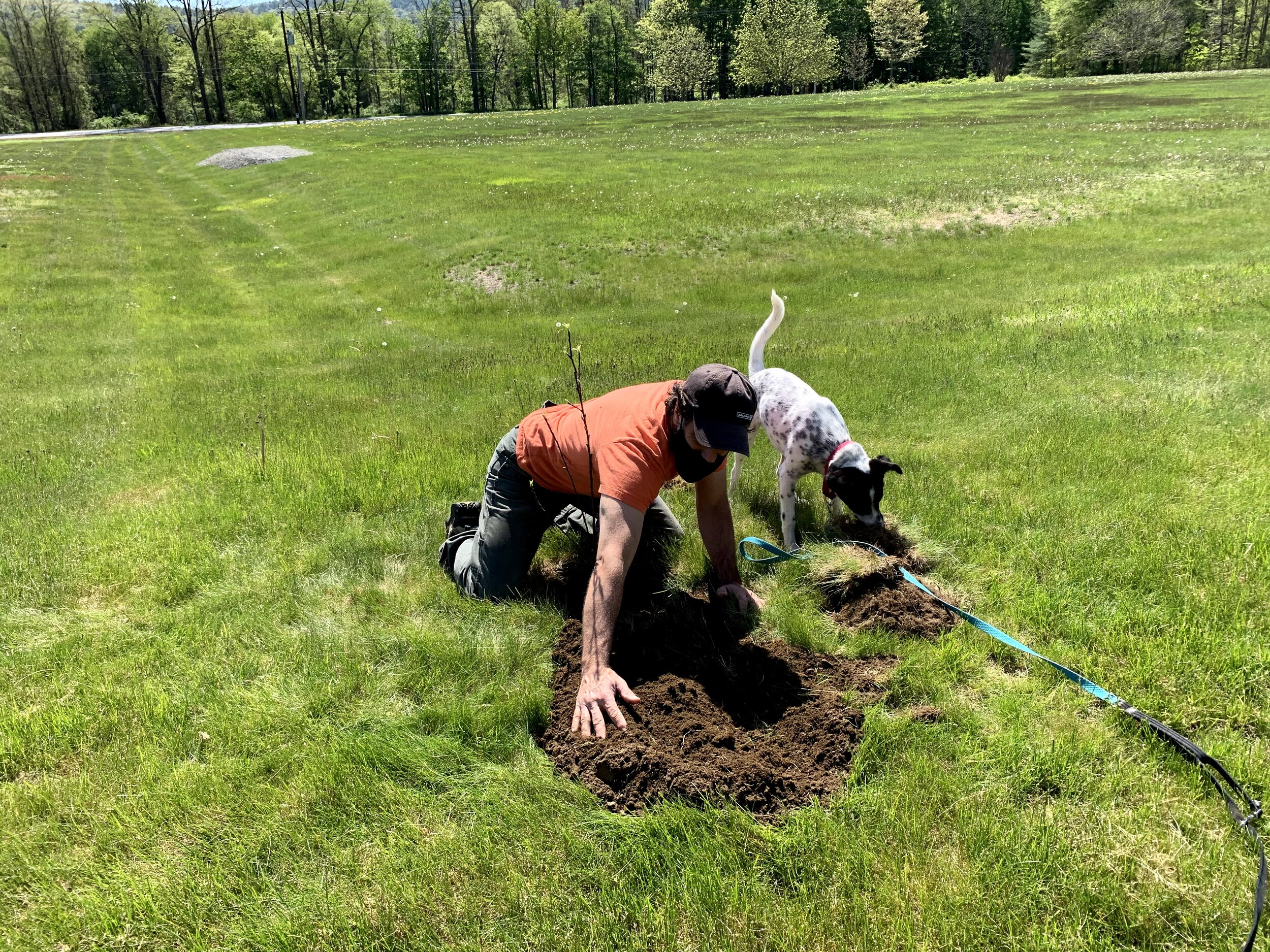Mixing bowls full of tropical fruits and veggies, hot plates frying up potatoes, and new foods abound (think tamarind, hibiscus, and cassava). This past June, Green Street School’s sixth-grade French class prepped mango and avocado salad from Seychelles alongside a hearty Haitian riz colle, in addition to 9 other dishes and drinks to celebrate six years of learning about French language and culture.
Back in October of 2020, this would have seemed impossible. Thanks to dedicated educators throughout the region and Food Connects support, Farm to School scenes like this cooking experience continued throughout the year and helped provide normalcy to an otherwise challenging year.
Many educators saw Farm to School as a means to get students out of the classroom. “Gardening time was an absolute highlight of the day for me and my students,” reflected Molly Stoner, a 4th-grade teacher at Dummerston School. “Students would run out and check for sprouting/growth in their milk jug greenhouses the second they got to school. Later in the spring, adding compost to beds, planting and watering the seed they sown, taking home sprouts enriched us all and kept us grounded in all the potential of our beautiful Vermont land."
This spring, Dummerston planted 12 apple trees donated by Scott Farm Orchard. Many other school gardens expanded as well. For example, Grafton Elementary School added a pumpkin patch to their school garden. Central Elementary School in Bellows Falls expanded its urban growing space and plans to develop a more robust Farm to School program that emphasizes community connections.
For those feeding our students, the year never let up. Born out of the pandemic, our Who Feeds Our Kids series celebrated the school nutrition professionals who remain the backbone of the school community. Responding to rising food insecurity, they sent out weekend and school break food boxes. With local food from the Food Connects Food Hub highlighted, the food boxes provided another layer of support for families experiencing food insecurity. We’re excited to see the expanded service stay for years to come.
Food Connects’ flexible support helped schools maintain their programs and respond quickly to new obstacles; when our network schools couldn’t find COVID-19 cooking guidelines, we researched CDC recommendations to create a protocol for educators to follow. We put together 800 sprouting kits for students during the doldrums of late winter, adding some greenery to classrooms and anticipation for more planting come spring.
“It’s the creativity and flexibility that we saw throughout the pandemic that is going to help us spring forward next year,” says Conor Floyd, Food Connects Farm to School Program Manager. “We’re excited to continue working alongside our school partners to develop new programming opportunities.”










